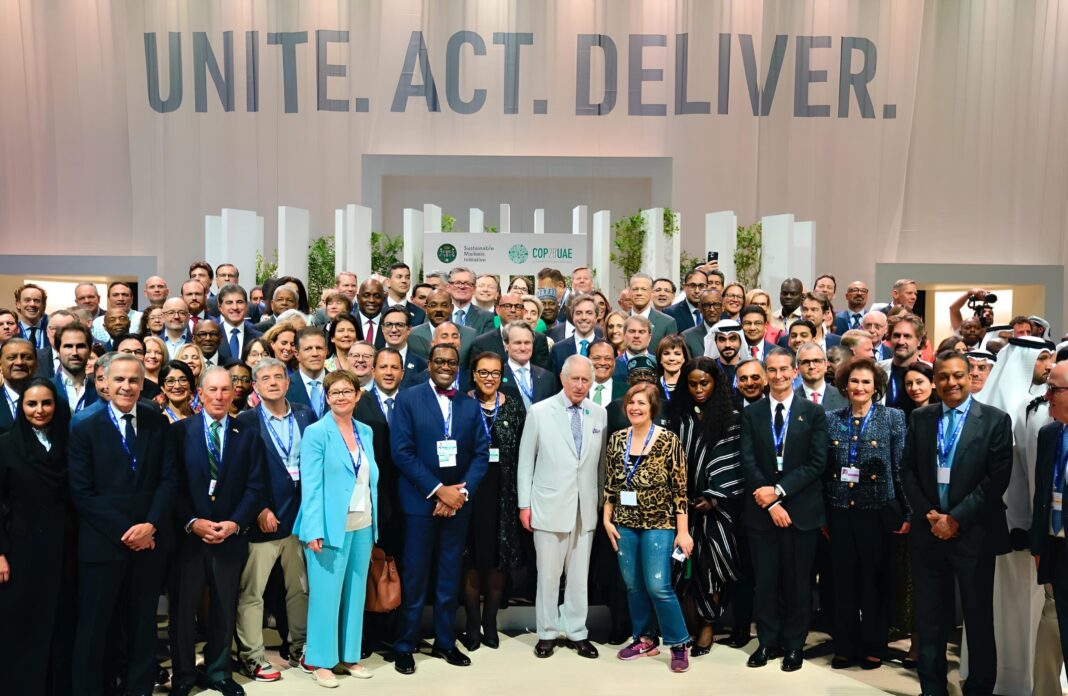More than $420m has been pledged by some of the world’s wealthiest countries to assist developing countries with damage caused by climate change.
The new fund will help drive the $100b promised by wealthy countries in the Paris Climate Agreement and help developing countries manage the impacts of climate-change-induced damage.
It came before the official programming for the World Leaders Summit, which starts later today and followed COP27, which saw wealthy nations make a U-turn on their historic opposition to the Global Fund.
The breakthrough occurred when a host of countries, led by the UAE, Germany, the UK, the US and Japan, agreed to the calls from small island states to set up dedicated funding streams for loss and damage.
The loss and damage fund refers to the impact of climate-induced events on economies, infrastructures, and societies. Small island states have been rallying for dedicated funding for years, and significant nations agreed to do so at COP28.
First suggested by Vanuatu in 1991, it recognises that those countries likely to be most affected by climate change are the least responsible for the problem itself.
The fund ensures those who created the problem of climate change – developed states and major emitters – would compensate those experiencing its most devastating effects.
Wood Central understands that the loss and damage fund could result in some of the most densely forested countries in the world being eligible for the fund, given the impact of climate change on the world’s forest canopy.
According to Ambassador Pa’olelei Luteru, the AOSIS Chair, “the work is far from over. After the gavel drops at COP28, we cannot rest until this fund is adequately financed and starts to alleviate the burden of vulnerable communities. Success starts when the international community can properly support the victims of this climate crisis, with efficient, direct access to the finance they urgently need.”
This morning, the Guardian revealed that talks on the logistics of the fund took place between November 3 and 5 in Abu Dhabi. After several lengthy meetings, negotiators finally agreed on a blueprint for operationalising a global loss and damage fund.
The World Bank has agreed to act as administrator for the fund for at least four years – with administration of the fund after that yet to be determined.
Additionally, nations that should pay in have been named, including the US, UK, EU and the G20. Those countries will be “urged” to contribute their fair share, while rapidly developing nations with major economies, like China, will be “encouraged” to pay in.
Members of a “Transitional Committee” called for the fund to operate in line with the principles of the Paris Agreement, which saw $100b in promised annual climate finance largely ignored by wealthy nations.
The UN’s latest adaptation gap report, published last month, warns that current annual levels of international climate adaptation funding could need to increase eighteen times (from $21b in 2021 to £387b by 2030) without more concerted climate mitigation efforts.
Momentum is building for wealthier countries to pay their way – and assist developing countries with the transition to a zero-carbon economy.
Last week, Wood Central reported that Brazil will propose a “huge” fund to pay for the conversion of tropical forests. According to the country’s top negotiator, the financial mechanism is the latest in the proliferation of multilateral environmental funds looking to tackle deforestation.
It comes as Brazil, along with twelve countries representing the Amazon, Congo Basin and Southeast Asia, has signed a pact, “United for Our Forests,” pushing for wealthier countries to do more to assist poorer countries in transitioning to a green economy.
“Our countries must wield more influence over the management of resources allocated to the conservation and sustainable use of biodiversity,” according to the official communique.
Countries agreed in the past year to establish a giant fund dedicated to biodiversity and another to pay for the destruction caused by climate change.
The funds funnel money from rich countries to poor developing nations that struggle to pay for their environmental efforts.
However, Brazil wants to go further.
Wood Central understands that Brazil presented the idea of a tropical forest conservation fund yesterday to a ministerial meeting from seven other Amazon rainforest countries.
“It’s a conceptual proposal to create a fund to help conserve tropical forests around the world…in 80 countries,” according to Brazil’s top climate diplomat, Andre Correa do Lago.
Asked if the fund would rival $100 billion in annual funding previously promised by rich nations in climate financing, Correa do Lago declined to give the proposed size of the fund but said it would be “huge.”
Like many existing schemes, the fund would not value forest conservation in terms of carbon “since protecting forests would prevent further greenhouse gas emissions rather than absorbing additional carbon dioxide already in the atmosphere,” Correa do Lago said.
He said the value would likely instead be linked to the area of forest measured in hectares or units of 0.01 square kilometres (0.0039 square miles).
The international proposal to conserve forests will be partnered with a domestic program to reforest destroyed areas.
Brazil also will launch plans at COP28 for an “Arc of Restoration” to counter the so-called arc of deforestation advancing ever deeper into the Amazon.






